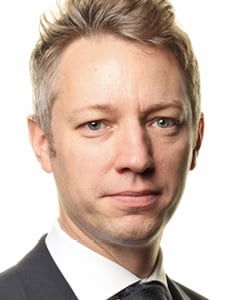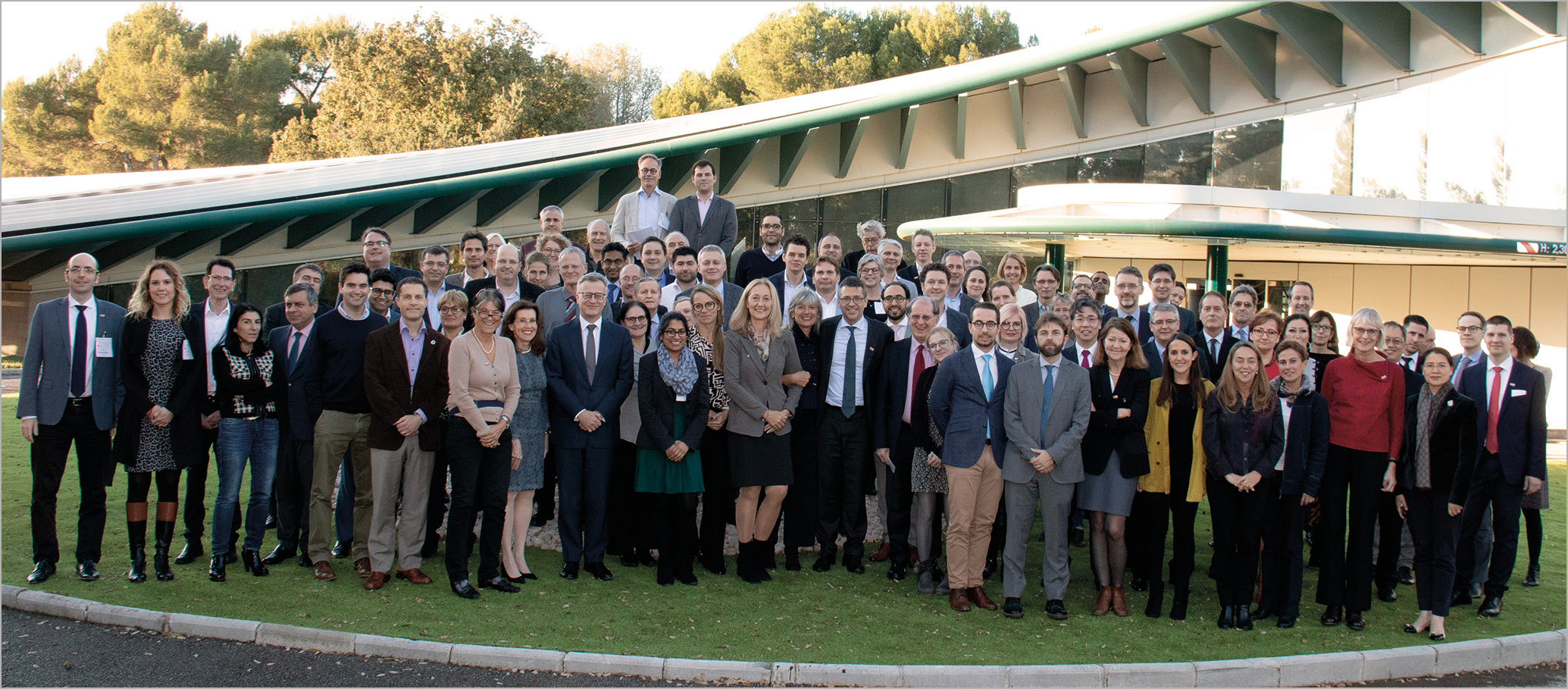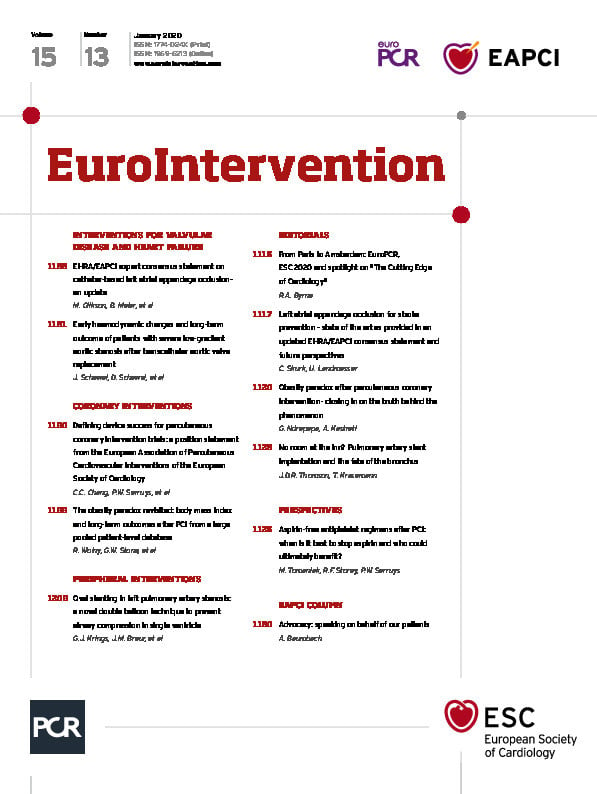
As we turn the page on another year, we look forward to our planning for 2020 and many of us will already begin to pencil in the meetings we hope to attend in the coming year. The interventional community looks forward in particular to its flagship European meeting and the official meeting of our EAPCI association – EuroPCR – in Paris in May. Last year, EuroPCR celebrated its 30th anniversary and more than 11,200 active participants and over 4,700 online learners participated, making this one of the most successful meetings yet.
This year as usual, the meeting will take place in the Palais des Congrès in the centre of Paris from 19 to 22 May. The call for submissions in the form of innovation, abstracts, clinical cases and images closes on 5 January. Late breaking trial submissions remain open until 26 January and the results of all submission types will be made known on 22 February.
As a cross-specialty meeting, the ESC Congress has become the leading annual meeting worldwide. Indeed, the recent meeting in Paris attracted a record number of delegates with a total of 33,510 registrations. Attendance is truly global with 150 countries represented. The countries with the most participants in order of numbers were Germany, France, Italy, the USA, and the United Kingdom. In terms of invited faculty and presenters, there were a total of 5,114 active participants in the programme, representing 94 countries. In terms of gender balance, 32.4% of active participants were female and 67.6% were male. Moving location in Paris to a new centrally located convention facility certainly generated a lot of positive feedback and many of us enjoyed the compact layout as well as the stunning views of Paris from the rooftop.
The success of the ESC meeting does not happen by accident. Nevertheless, it may surprise some of you to know that planning for the forthcoming meeting in Amsterdam is already very well advanced. The 2020 Congress will take place from Saturday 29 August to Wednesday 2 September. A new development this year is that Saturday will be a full Congress programme day. The spotlight theme for this year for the Congress is The Cutting Edge of Cardiology, with specific sessions focusing on the latest technology in clinical cardiology as well as those on the horizon.
The ESC Congress Programme Committee met in November at the Heart House (Figure 1). For the ESC Congress it really is a case of after the Congress is before the Congress! Like last year, the committee is successfully led by Marco Roffi and Silvia Priori. At the meeting, the committee members were updated on the logistical plans for Amsterdam 2020 and they began the process of building each of the 640 planned sessions.

Figure 1. ESC Congress Programme Committee meeting at the Heart House in November 2019.
Many of you will have fond memories of previous meetings in Amsterdam. The city itself is popular with travellers due to its excellent logistics. Connections to the city are second to none (327 direct flight connections from Schiphol airport), and the city has more than 45,000 hotel rooms. The Congress is located at the well-known RAI Amsterdam convention centre, which is centrally located in Amsterdam.
Certain aspects of the convention centre worked very well last time round, though other areas required improvement. The reception area in particular has undergone a complete revamp compared with the last hosting. The available exhibition space is now more than 22,000m² and, due to its continuing popularity, the digital health exhibition space is growing rapidly with more than 4,000m² allocated for 2020.
The Congress Programme Committee (CPC) works on building the programme divided into specific working groups according to topic and specialty. The main work of the November meeting was to plan the non-abstract sessions. These session types include Regular and Case-Based Symposia, Expert Advice, Guidelines in Daily Practice, How Should I Treat and Cardiology in 4 Days. The basis for programme building is the sessions collected from you the community in response to the call for sessions, which takes place over the summer months in the preceding year. Particular thanks are due to the EAPCI community and its delegates who submitted a total of 90 intervention session proposals, which must be some sort of record! Great credit is also due to the EAPCI Scientific Programme and Congress Committee led by Professor Martine Gilard and Dr Miles Behan.
A popular element of the ESC Congress is always the guideline sessions. Last year in Paris, these sessions regularly attracted audiences of more than 3,000 participants. This year is no different, with four clinical practice guidelines scheduled for presentation in Amsterdam. These are Non-ST-elevation Acute Coronary Syndrome, chaired by Jean-Philippe Collet and Holger Thiele, Atrial Fibrillation, chaired by Tatjana Potpara and Gerhard Hindricks, Adult Congenital Heart Disease, chaired by Helmut Baumgartner and Julie De Backer, and Sports Cardiology and Physical Activity in Patients with Cardiovascular Disease, chaired by Antonio Pelliccia and Sanjay Sharma.
The second CPC meeting takes place in the spring after the abstract submission deadline, which remains, as ever, 14th February. The Clinical Case submission deadline is the 1st of March. Finally, the ESC Congress has, in many respects, come to be defined by the quality of the late breaking science contributions and the deadline for submissions in this category of science is 21 May.
In the current era of increasing access to information online, the flagship European interventional and general cardiology meetings continue to go from strength to strength. The sharing of knowledge and experience in person and the opportunity to meet and network with colleagues continues to have broad appeal. At the same time, in the current climate, we are all increasingly aware of issues surrounding sustainability. Its impact on our choices about the meetings we attend means that the quality of the educational content and Congress experience will become increasingly important.

